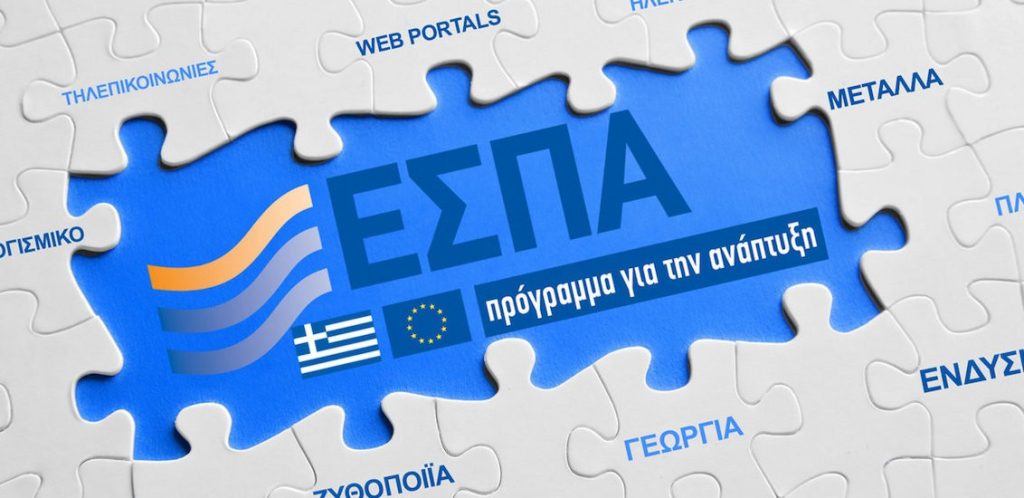
Grants worth €1 billion will be shared by around 56,000 businesses under the two programmes of the new NSRF: Digital Transformation of SMEs and Green Transition for SMEs, which starts on 31 January.
According to the Deputy Minister of Development and Investment, Yannis Tsakiris, the action for the digital transformation of small and medium-sized enterprises, with an initial budget of 300 million euros will be published until 31 January. This will be followed shortly afterwards by the Green Business Transition Action, with a budget of 700 million euros.
As Mr Kostis Hatzidakis said : Tsakiris "all interested SMEs will be able to join until the budget is exhausted". At the same time, he underlined that the Regional Aid Map is the most important parameter in all programmes.
They "lowered" the criteria for the NSRF programme
With the aim of integrating as many companies as possible, they "lowered" the criteria for membership in terms of the number of employees.
As Mr. Tsakiris the Commission wanted the limit for the AWUs (Annual Work Units) to be 7., After the negotiation the lower limit has been lowered to 3 AWUs.
In particular, the NSRF call for digital switchover is open to businesses:
- with three employees all year round, or
- six workers in the six months, or
- 12 workers in 3 months
It is noted that the pre-publication states that the limit is five employees.
The green transition requires a minimum of two employees.
FIFO system
Please note that each call will not have a deadline, but each application will be met on a first in, first out basis.
"Our main goal is to close the digital and green gap of Greek businesses with the European average as soon as possible", Mr. Tsakiris, explaining that the inclusion of businesses in the two actions will be done on a priority basis and not through benchmarking, as was previously the case. From now on, businesses whose applications have been submitted first will ensure their inclusion in the actions and the order of priority will be respected "until the budget is exhausted".
Mr Tsakiris estimates that this amount will be exhausted in 2 years-3 years.
From 18.000 euros the NSRF grant
The digital transformation programme for SMEs includes 3 "pillars", depending on the digital readiness of each business, with the available budget starting from €18,000 and reaching up to €1,200,000.
Similarly, the NSRF programme for the green transition will have 2 "pillars", with the amount of funding ranging from €30,000 to 1 million. euros.
The two "thorns"
However, the package of actions for the green transition of SMEs does not include franchises because they are associated businesses, according to Mr. Tsakiri, while it is not only a Greek problem, but a European problem,
The Deputy Minister of Development stressed, however, that "we are trying to solve this issue in consultation with the Commission".
In particular, a questionnaire to be completed by franchisees in the form of an affidavit will be used to clarify the franchisor's percentage of participation, where the franchisee buys raw materials from, etc.
A second issue that remains to be resolved concerns the purchase of hybrid vehicles and not only electric vehicles, which is a problem in the case of trucks and coaches. "We are awaiting a response on this issue from the European Commission," Mr Tsakiris said.
The platform for creating company profiles is leading the way
Before the two NSRF actions are announced, so that applications can start, the new Integrated State Aid Information System (OPSKE ), which is an evolution of the OPSKE, will be opened.
The ministry aims to open on Thursday 19 January at 12.00 noon. At this, interested businesses - but also business advisors- and create a profile.
"The new IPSKE is more friendly to the businesses concerned, while ensuring that businesses are interconnected with all key state systems, such as taxisnet, Ergani etc.", explained Mr. Tsakiris, referring to an exclusively electronic procedure.
What is included in the call for the Digital Transformation of SMEs
The package of actions of the NSRF Digital Transformation of SMEs aims to address the lagging behind of Greek enterprises in terms of the adoption and integration of modern digital technologies in their productive activity, covering their targeted needs depending on their existing digital and technological maturity, but also their different investment needs.
The programme includes the following three funding baskets:
Action 1 - Basic Digital Transformation of SMEs. It concerns enterprises that have not yet integrated important information and telecommunications technologies (ICT) in their operations and aims to cover basic deficiencies in applications and equipment.
The minimum and maximum total supported budget of the funding application is set between 18,000 and 30,000 euros.
Action 2 - Advanced Digital Transformation of SMEs. It concerns enterprises that aim to expand their digital and technological maturity with integrated investments in new ICTs that will upgrade their competitiveness.
The minimum and maximum total supported budget of the funding application is set between EUR 50,000 and 650,000.
Action 3 - Cutting Edge Digital Transformation of SMEs. It concerns enterprises that have already integrated ICT in many of their operations and are now seeking to implement integrated investments in cutting-edge technologies or 4th industrial revolution solutions.
The minimum and maximum total supported budget of the funding application is set between 200,001 and 1,200,000 euros.
What Green Transition for SMEs is about of the NSRF
The Green Transition SME package aims to upgrade the country's SMEs. Eligible costs of the actions include, but are not limited to: buildings,
- facilities and surroundings
- machinery - equipment
- product certification
- marketing costs
- expenditure on improving energy efficiency and energy saving
The programme includes two "arms", as follows:
Action 1 - Green Transformation of SMEs. It concerns enterprises with a subsidised investment project budget of between 200,001 and 1,000,000 euros.
Action 2 - Green Productive Investment for SMEs. It concerns enterprises with a subsidised investment project budget of between 30,000 and 200,000 euros.




